Planning plays a significant role in your A Level exams since you will know how many days are left until the next exam. I have used some tools to plan my exams.
Since I have a good time-management and planning skills, I usually finish my tasks in advance so I will have a sense of achievement as well as more free time.
I have talked about how did I plan and prepare for my A Level exams in my last article, but I will mainly talk about my planning and time-managing methodology here.
Today, I am going to talk about my planning methodology that can help me to study productively and prepare for the A Level exams. Let's jump in!
Why you need to Plan your Study?
First, I am going to explain why you need to make plans for your study tasks.
Your time during the day is limited in which you need to do the things you want. So, it is essential to make your day-to-day plans to avoid wasting your time.
You always need to complete your study tasks whatever their deadlines are. If you finish your tasks on time or much earlier, you will have more free time during the day or week.
So, this not only saves your time on your tasks but also generates a Lhuge sense of achievement.
In contrast, if you cram or leave too many tasks until deadlines, you will rush to make your projects finished. This will lower the quality of your projects and hence they will become less effective in your exams.
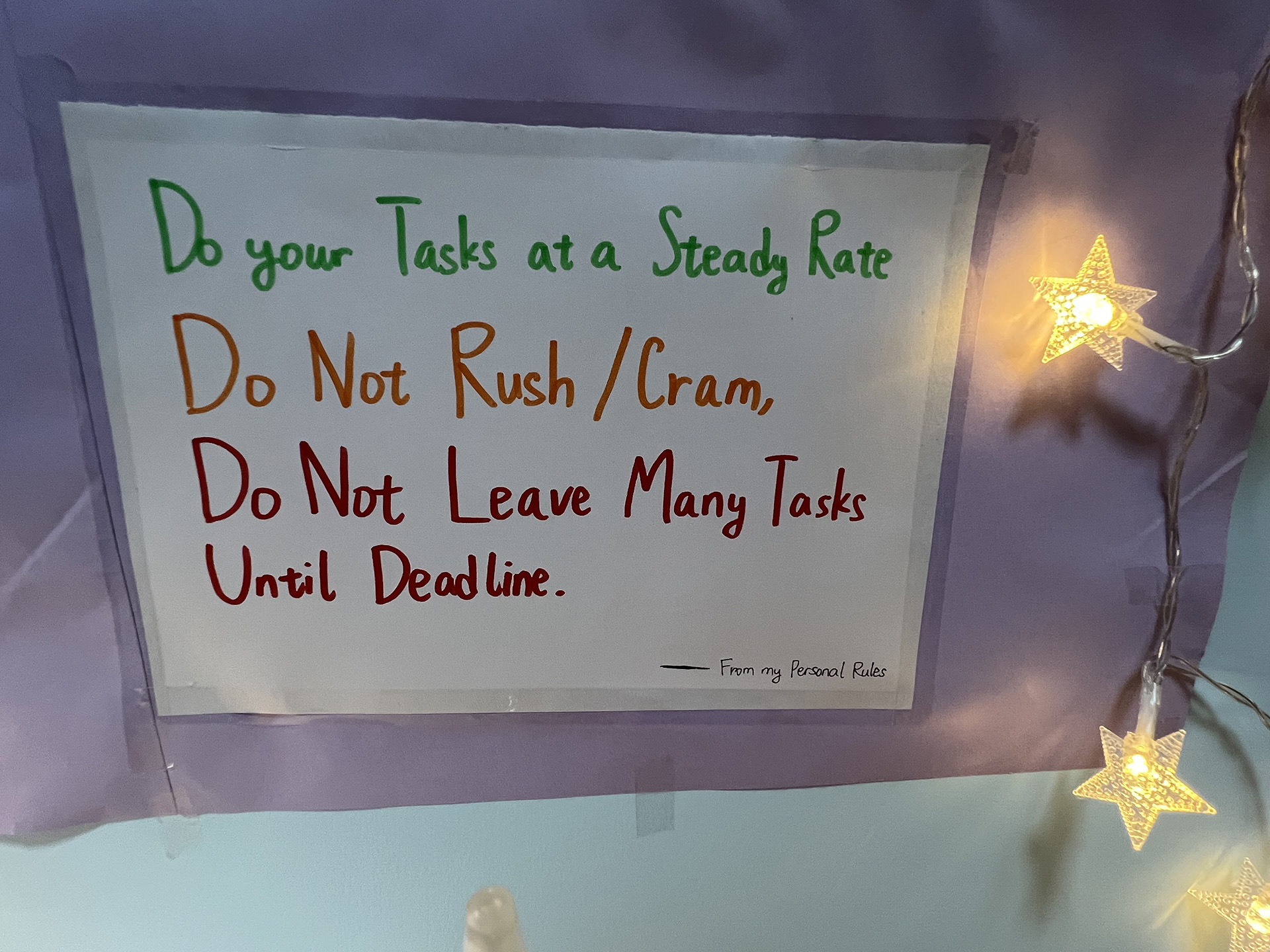
For example, I have already finished filling out my UCAS profile before my teacher teaches other students to open an account and fill out their profiles.
So, why is this? When my teacher lets us start our UCAS accounts by ourselves in our free time, I have set my virtual deadlines so I finished this as soon as possible.

My Tools for Planning
Now, move on to some tools and gears I am using to plan my study journey.
I have made my Tasks List, Projects/Events List, Study Planner, Study Timer and Integrated Planning System to effectively make my study plans.
Tasks List
The first one is my tasks list which shows the tasks I need to do during the day.
I always follow my lists so I will not be distracted internally. For example, unless someone tells me to do something else (e.g. answering classmate's questions), I always follow my tasks list strictly.
The tasks list of a day is arranged and made yesterday's night (just before sleeping time). This includes time ranges and tasks in each time range.
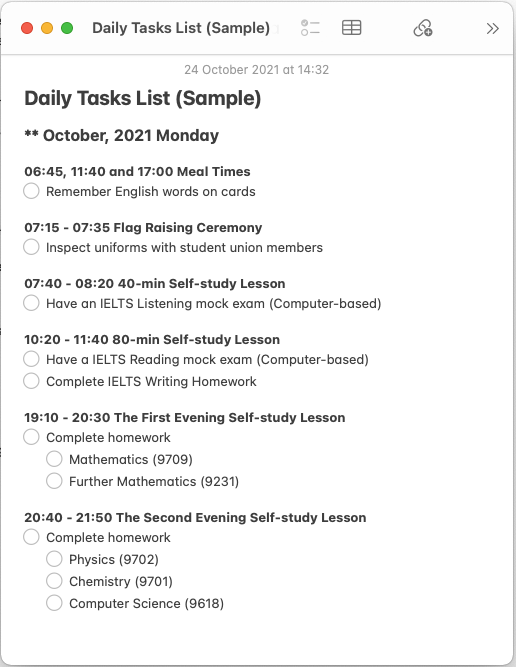 Learn More
Learn More
Projects/Events List
The second item is projects and events list, which stores my upcoming exams, competitions, activities, projects and homework.
You need to list your projects, exams, competitions and activities so you will be clear about your tasks and preparation work you will need to do.
For example, during the A Level international exam season, I list all of my upcoming exams using "Syllabus Code / Component Code" in a chronological order like "9709/33" for Pure Maths.
You can use my Study Planner (introduced below), your notebook or a piece of paper to list your upcoming projects and events.
As well as the exams, I also write down my upcoming competitions, activities and projects, including IELTS Writing Homework and UCAS Personal Statement First Draft.
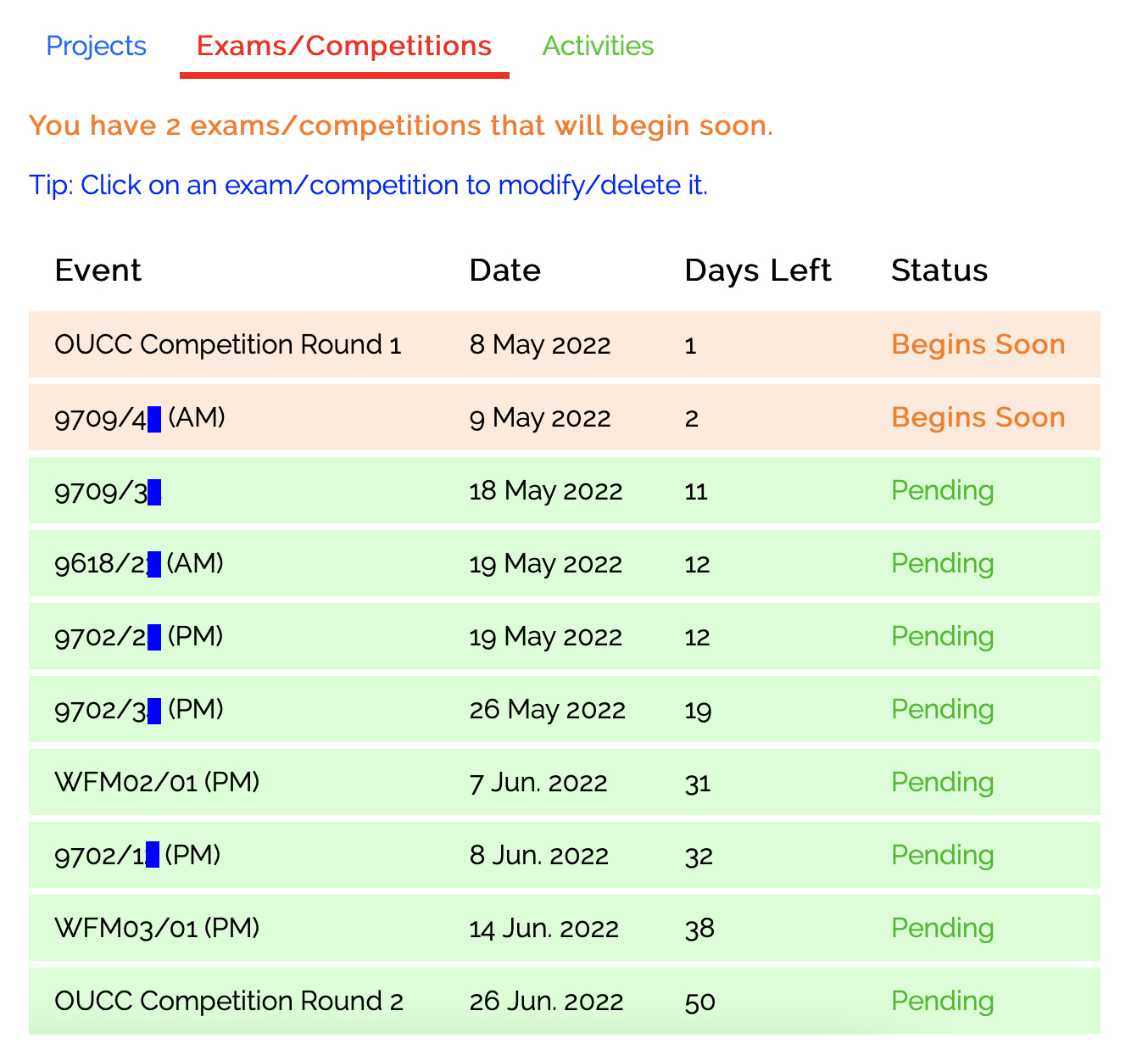
Students who are applying to universities in the UK need to write a Personal Statement in the UCAS application platform.
Ken's Study Planner
The next tool I use is my Study Planner. It integrates some planning features like Daily Goals Checklist, Projects and Events List and Items Checklists.
I have put my daily goals, projects and events list and items checklists on my planner. It is a web-based app I have programmed to demystify my study planning process.
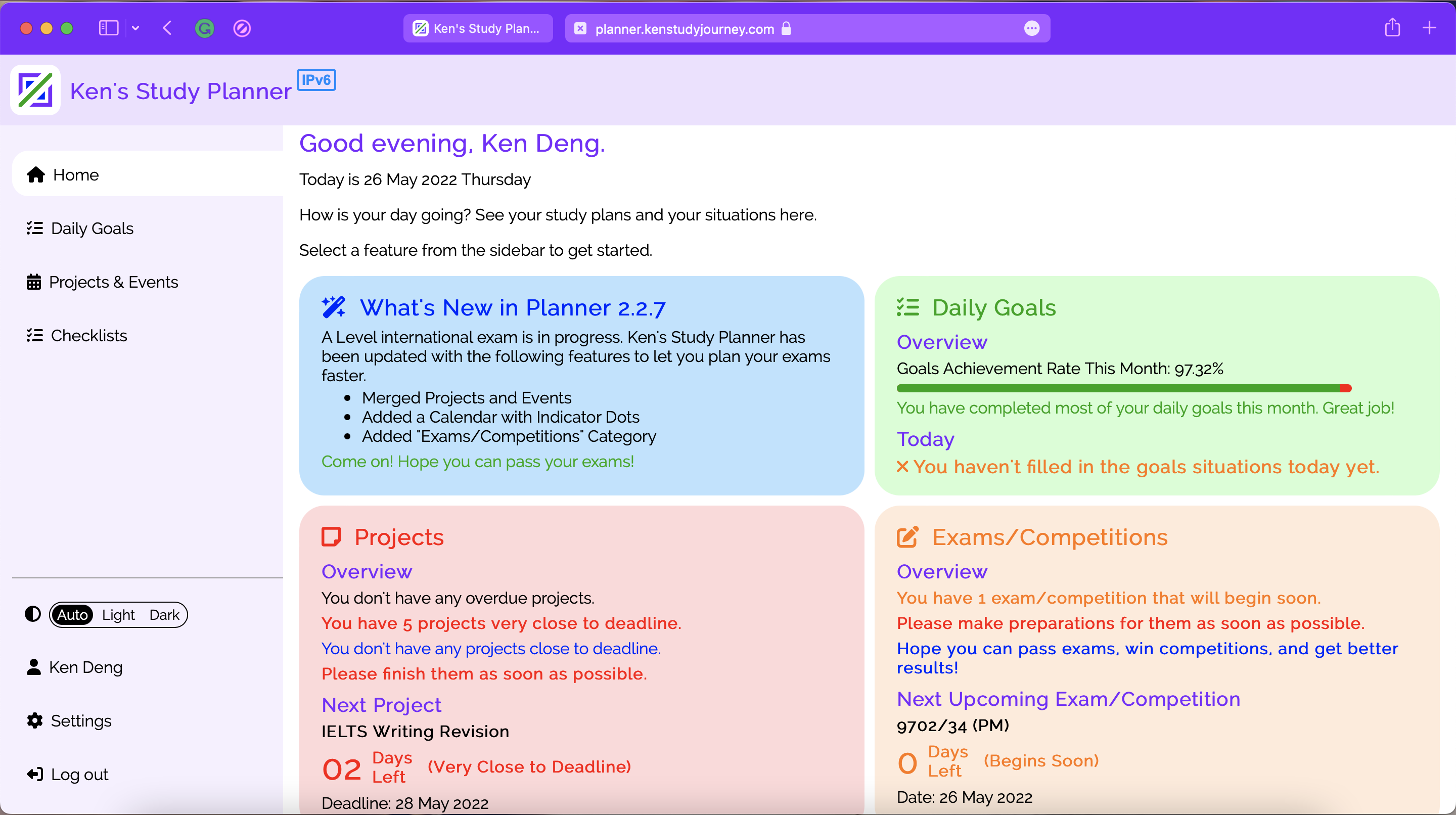
Some important features in this app I enjoy is the colourful interface, calculating and displaying how many days left until the next event, and the calendar beside the events list.
The colourful interface can let me know my status of the day and the days left counter stimulates me to prepare for upcoming exams.
For example, some blocks turn red or orange when there are some upcoming events. They turn green when I have no upcoming events.
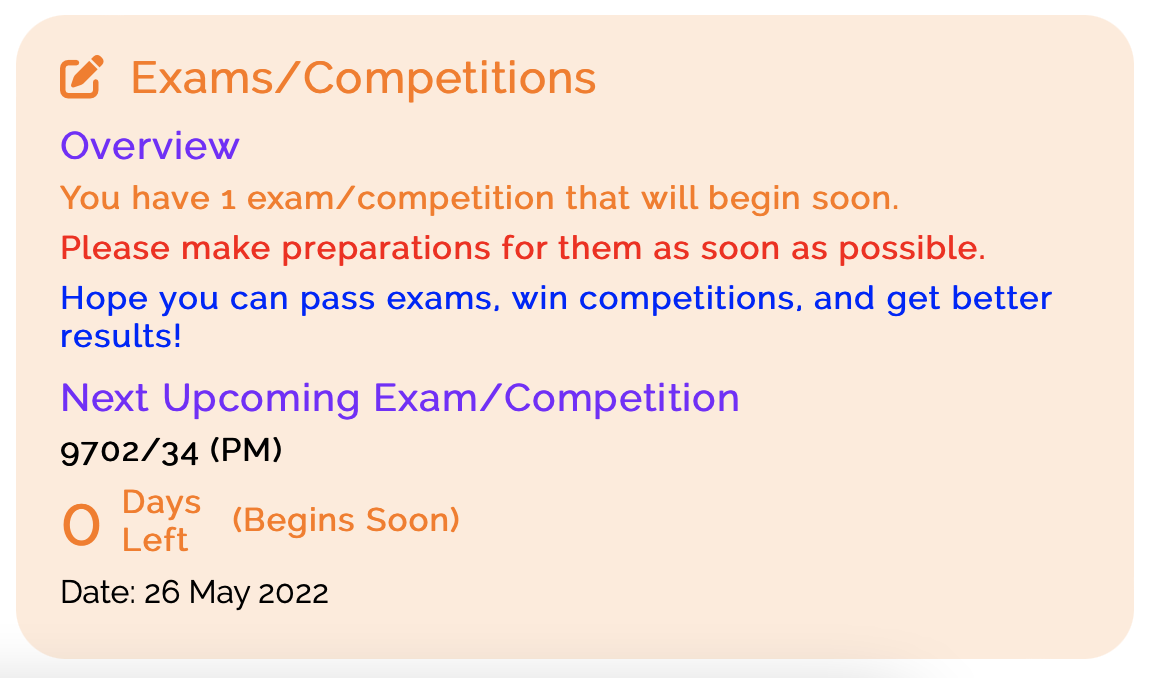
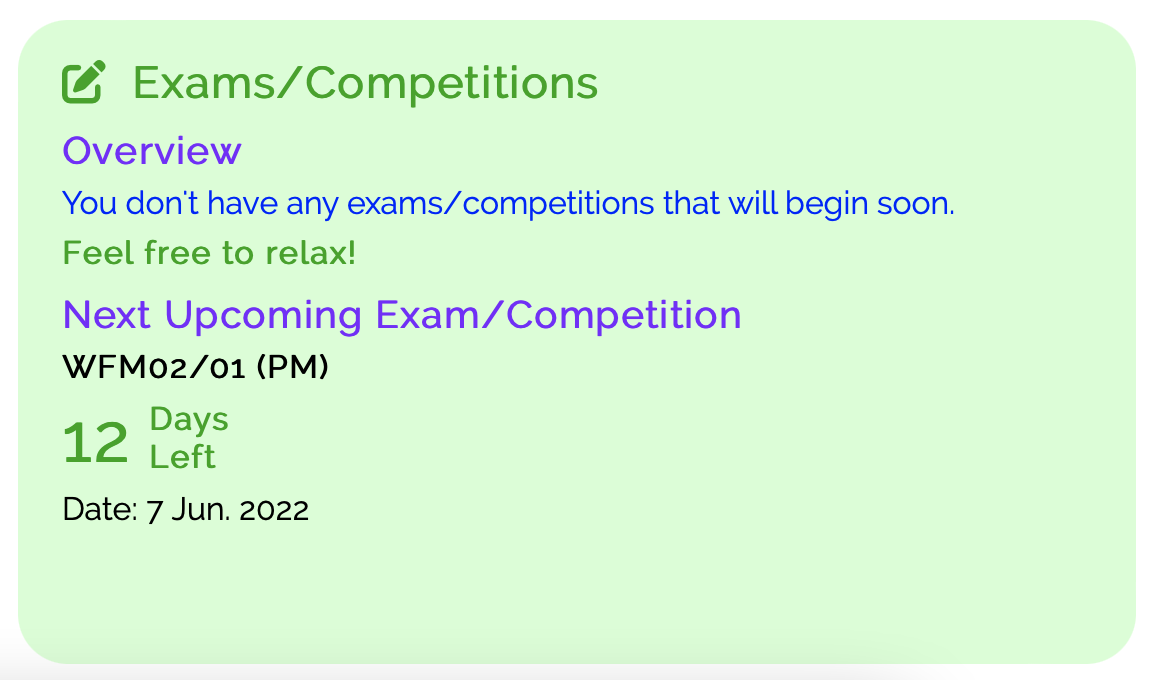
The calendar helps me to see my status more easily. The red dot indicates that this day contains exams.
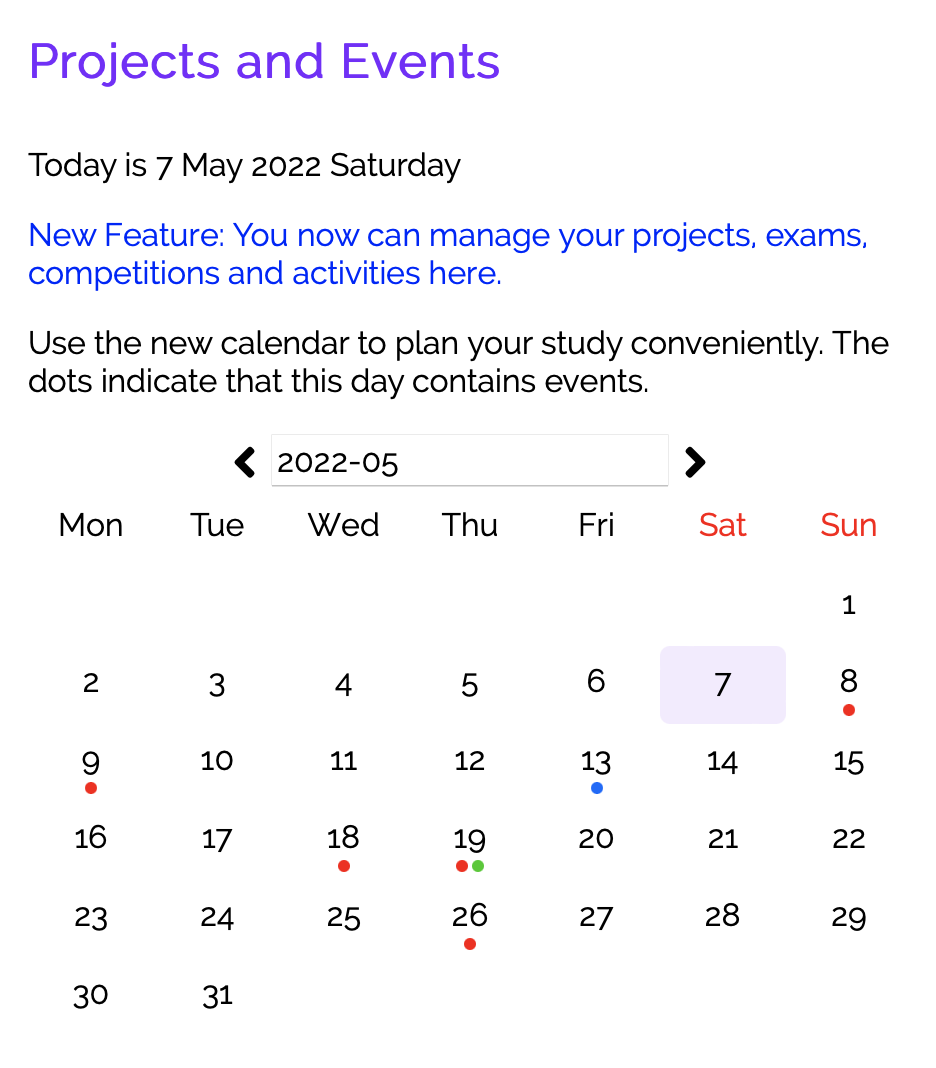 Learn More
Sign Up
Learn More
Sign Up
Study Timer
I also use my study timer to limit my studying time.
Every task and exam paper has time limits, so you need to do your tasks within the time range.
So, study timer is used to ensure that I am concentrated and can finish my tasks on the tasks list on time.
Note: My online study timer is now available.
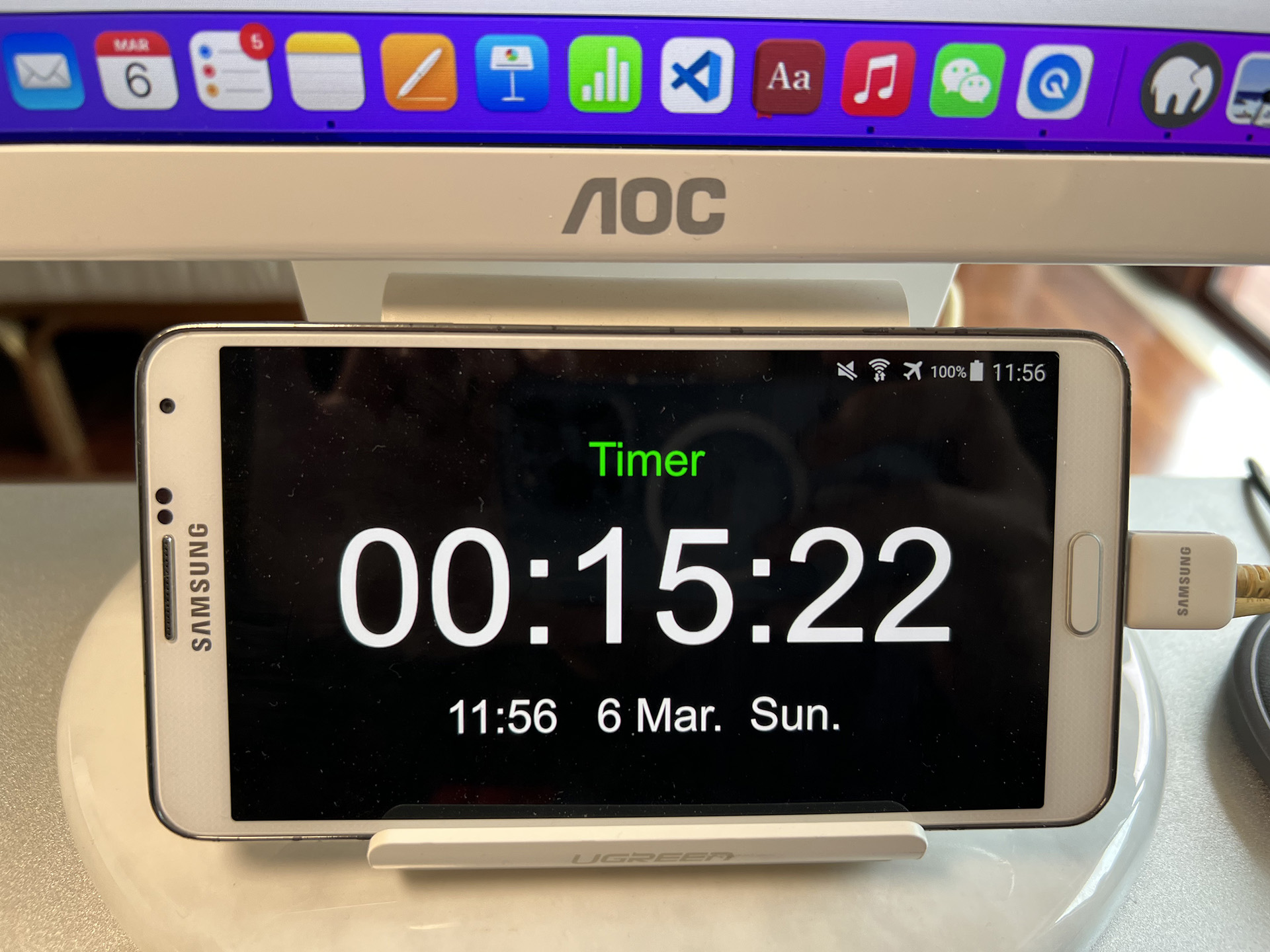
Integrated Planning System
The last one is my integrated planning system.
In order to ensure that all of my daily goals are achieved during the day, I have invented an integrated planning system.
It ensures that most tasks on my Tasks List satisfy with my daily goals. This is checked after building my tasks list for the day.
Therefore, my daily goals and tasks list are connected to ensure the achievement of my goals.
My Planning Methodology
Now, let's talk about my planning methodology.
There are several steps you need to do to plan your study and exams.
1. List your Upcoming Exams, Projects and Study Tasks
The first step is to list your upcoming exams, projects and study tasks.
With your projects and events list, you will be clear about the tasks and preparation work you will need to do so you will make your correct tasks list.
You can list them on your notebook, Ken's Study Planner app, or a piece of paper.

Then, create a list and list all the tasks you need to do later. You can write them down in your notebook or on a piece of paper. I call it Tasks Pool since they will be allocated to some daily tasks lists later on.
For example, you may need to write a Personal Statement for UCAS applications with several drafts, review knowledge for exams, and make decorations at your home.
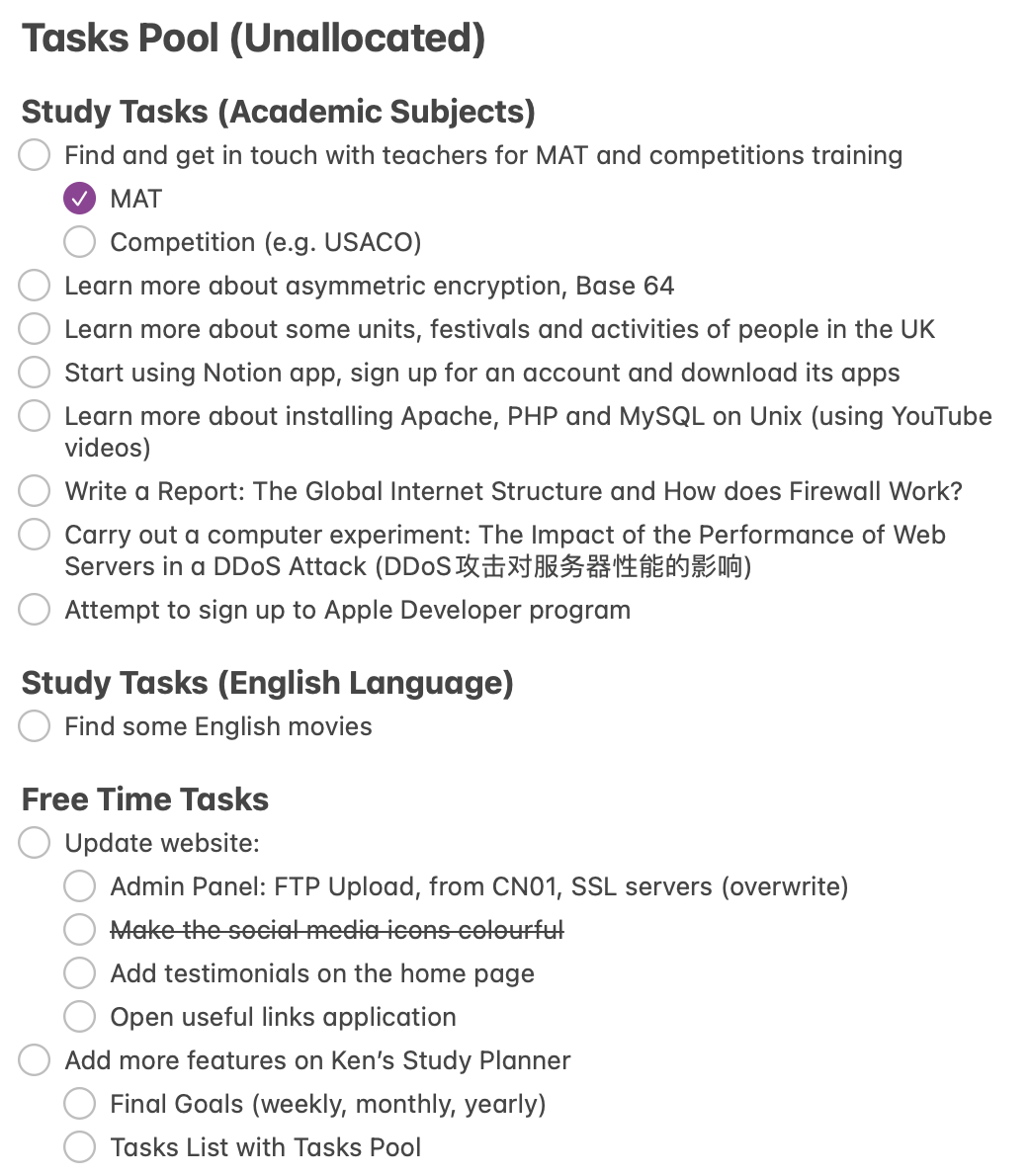
2. Allocate your Tasks and Make your Daily Tasks List
Once you have created your Tasks Pool listing all tasks you will need to do later, you can pull tasks from it and then allocate your tasks to your tasks list of some days.
First, you need to arrange time blocks during the day. For example, from 08:30 to 10:00.
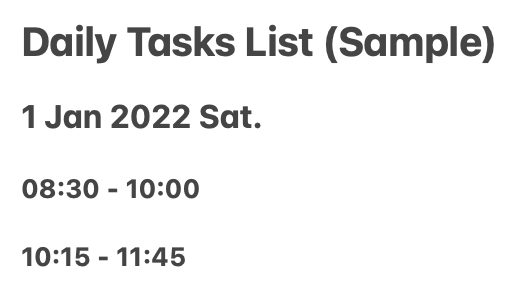
Then, fill in your tasks with the correct time blocks.
I recommend you to allocate tasks which has more time than the time blocks since you will need to continuously do your tasks, especially solving mathematics or computer programming questions.
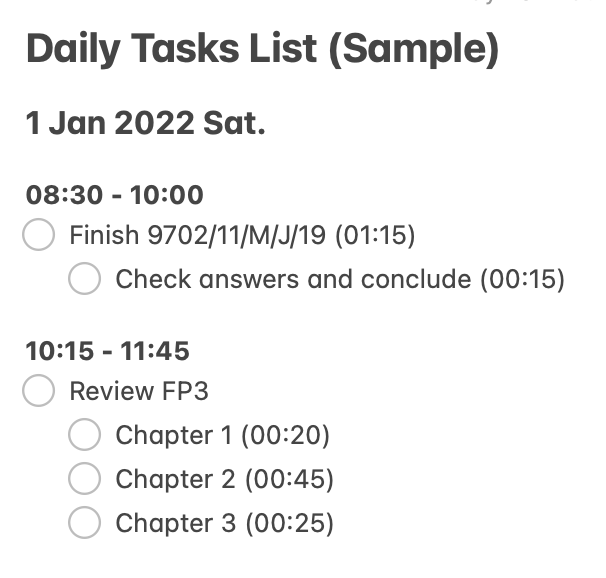
Finally, check your tasks list against your daily goals, making sure that you can achieve all your goals during the day.
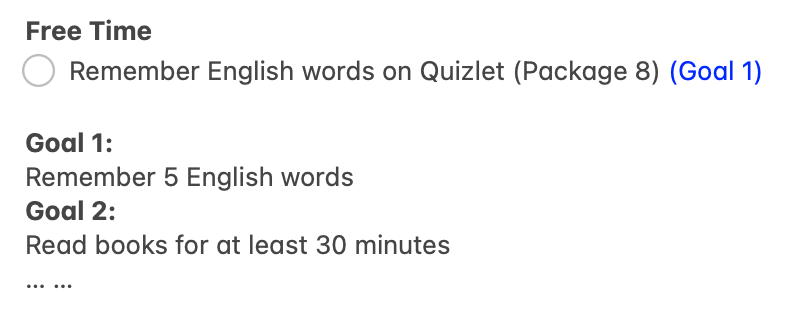
3. Do your Tasks According to your List
After setting up your tasks list for the day, you will need to do your tasks according to your list.
Put a tick (✔) once you have finished your tasks. I always immerse myself into studying since I only need to clear my tasks list to finish my necessary tasks.
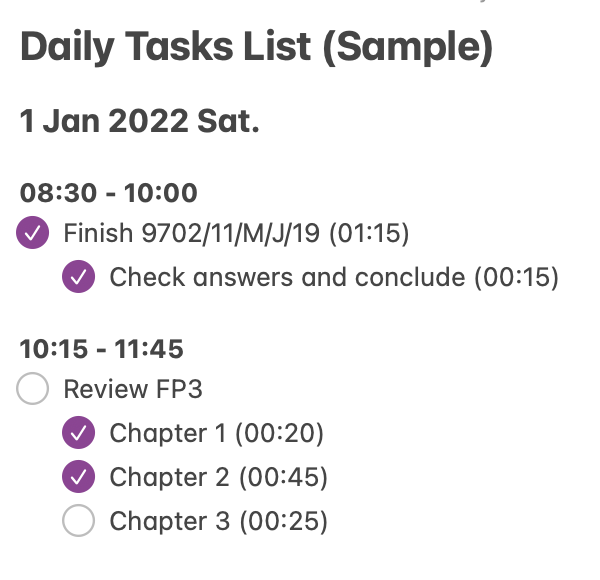
After a day, you will have a sense of achievement if you finished a majority of tasks. You can postpone your unfinished tasks and put into tomorrow's tasks list or put them back to the Tasks Pool.
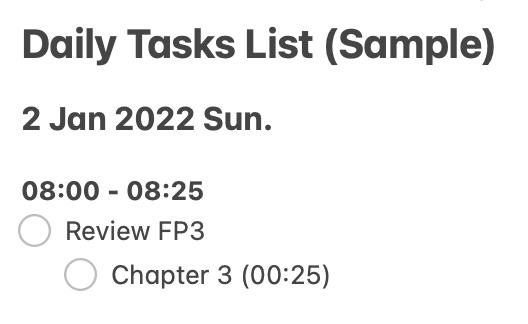
My Tips for Planning
Now, let's talk about my tips for planning your study and exams.
Reduce Procrastination
In order to achieve your goals and clear your tasks list as soon as possible to maximise your effort and make more progress, you firstly need to reduce procrastination and finish your tasks on time.
Procrastination is to delay or postpone your tasks you need to do now into a future date like tomorrow.
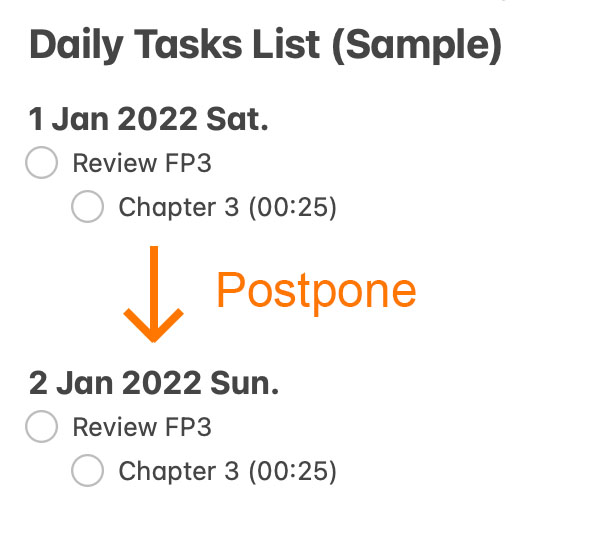
Again, if you leave too many tasks until deadline, you will lower the quality of your tasks and make too much pressure on yourself.
Always do your tasks on time or in advance to make more free time for yourself.
Achieve a Work-life Balance
In the past few months, I finally discovered that having a work-life balance can enjoy fun during the studying process.
Studying all day long can make the brain exhausted and some relaxation activities should be used.
However, I have some special ways to relax to have fun while not missing every study opportunity, remembering English words using Quizlet Flashcards, writing articles on my website, discovering and sharing knowledge points in real life, reading blog articles, listening to English audio, and doing my favourite Computer Science research.
Discovering and sharing knowledge can fully remember and understand the knowledge points, writing articles can enhance my writing skills, and reading blog articles can enhance reading skills.
For example, when I was going to Guangzhou City Centre at Zhujiang Newtown and Canton Tower for sightseeing in the evening, I have discovered a Physics knowledge.


For more breathtaking photos and sceneries, please follow my Instagram: @kenstudyjourney
You can relax for a suitable extent, but don't be over relaxed!
You will be less concentrated on your study tasks if you indulge with your relaxation tasks like games and videos.
I have completely different opinions and interests than others. That's why I don't want to communicate with a major source of people.
Avoid talking about other's blacklisted topics to make the communications enjoyable and acceptable.
Hope you can Pass the Exam!
The A Level international exam or school assessment is in progress. I hope you can study diligently and get outstanding results on your (I)GCSE or A Level exam! Come on!
If you like this article, please drop a 'like' thumb up below.
You can share and recommend this article to your friends and classmates if you wish, and write comments below about your feelings, questions and your school life.
Follow my social media to learn more about my latest information.
Instagram/Pinterest: @kenstudyjourney
Ken's Study Journey strives to provide high-quality articles about my tips and tutorials to study productively, together with some knowledge explanations. If you need help, I am here for you.
Subscribe to my email newsletter if you need to receive my latest articles and news.



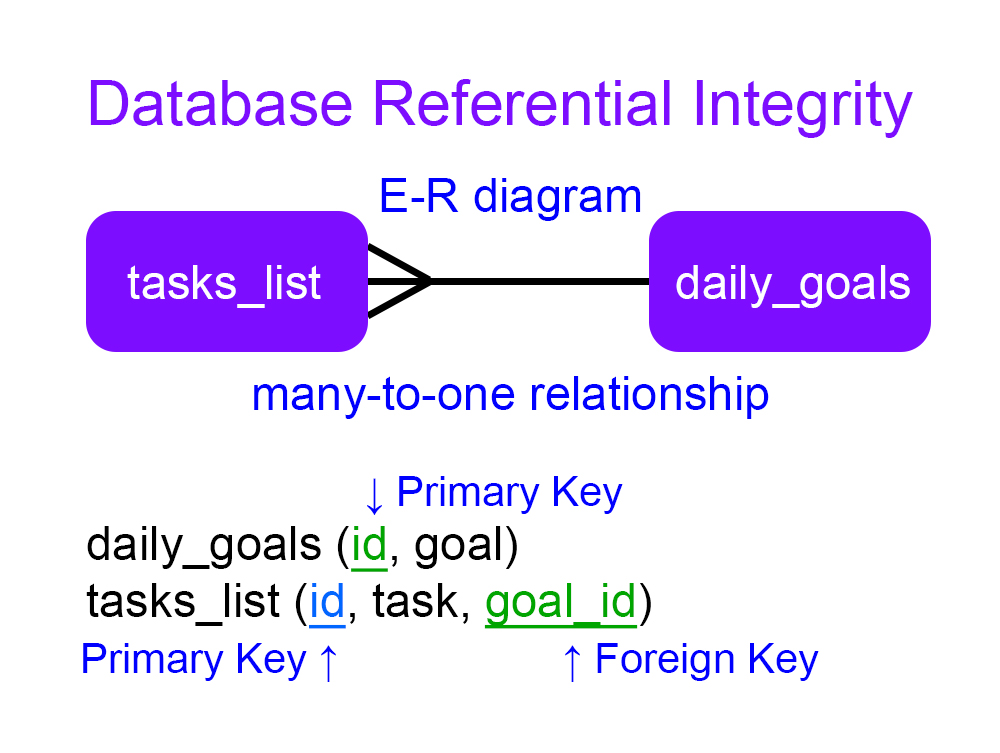
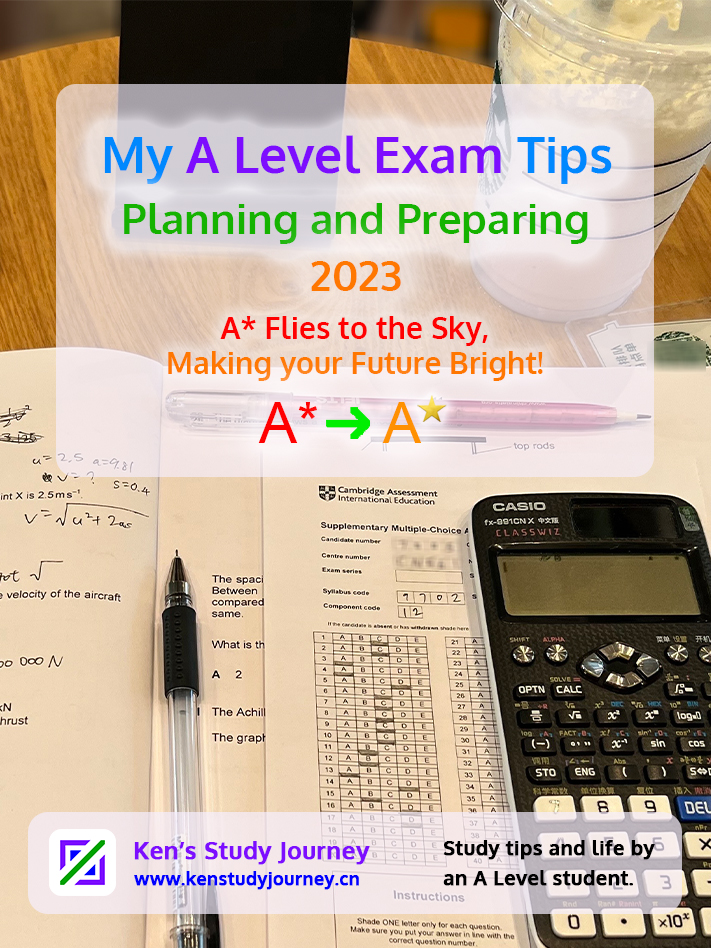
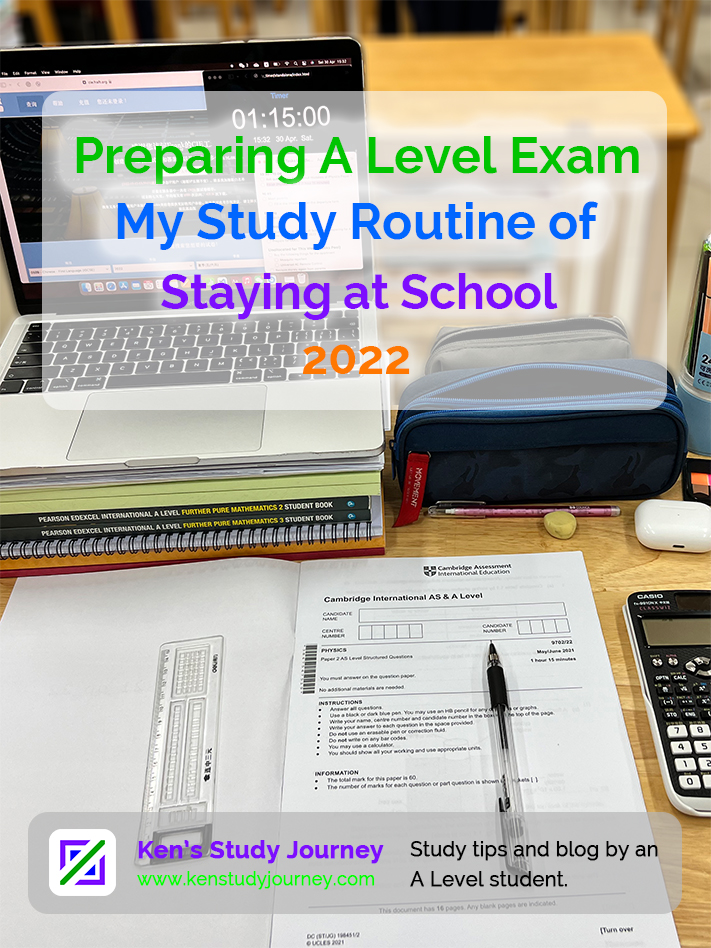
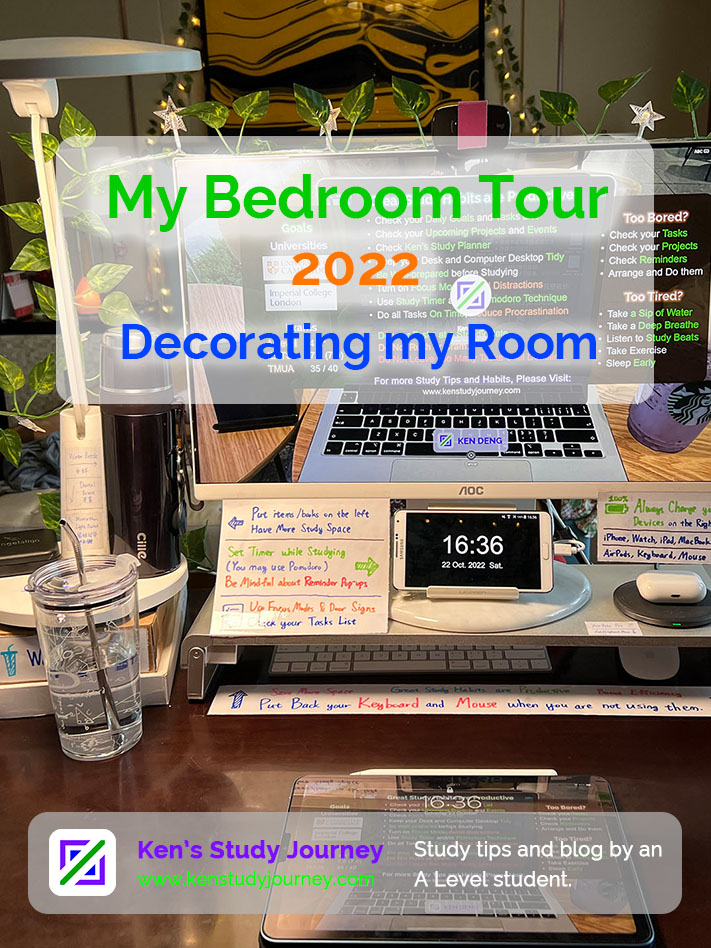
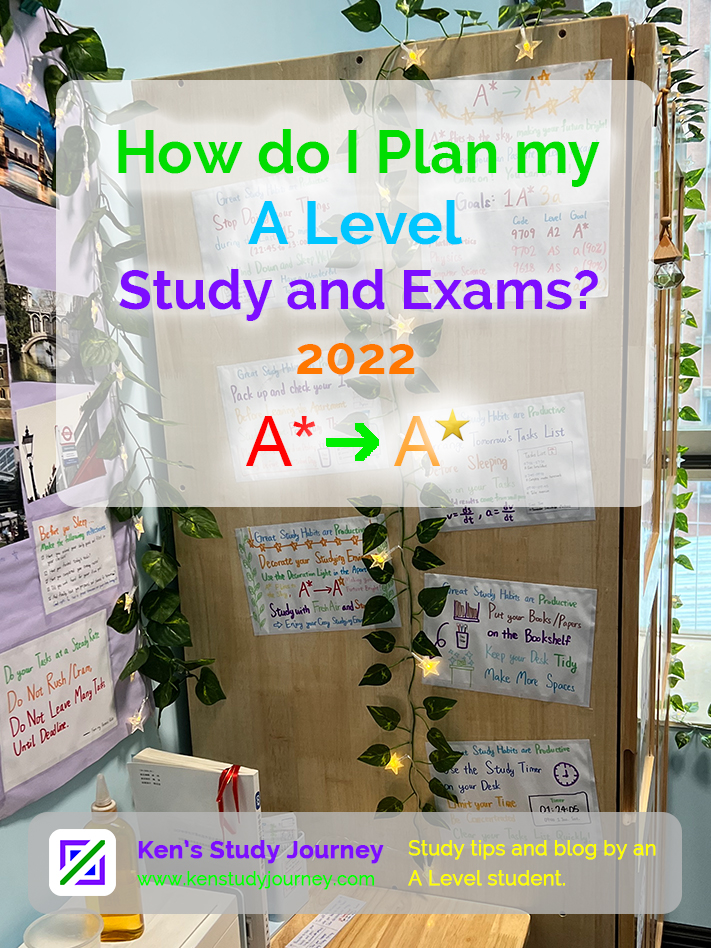

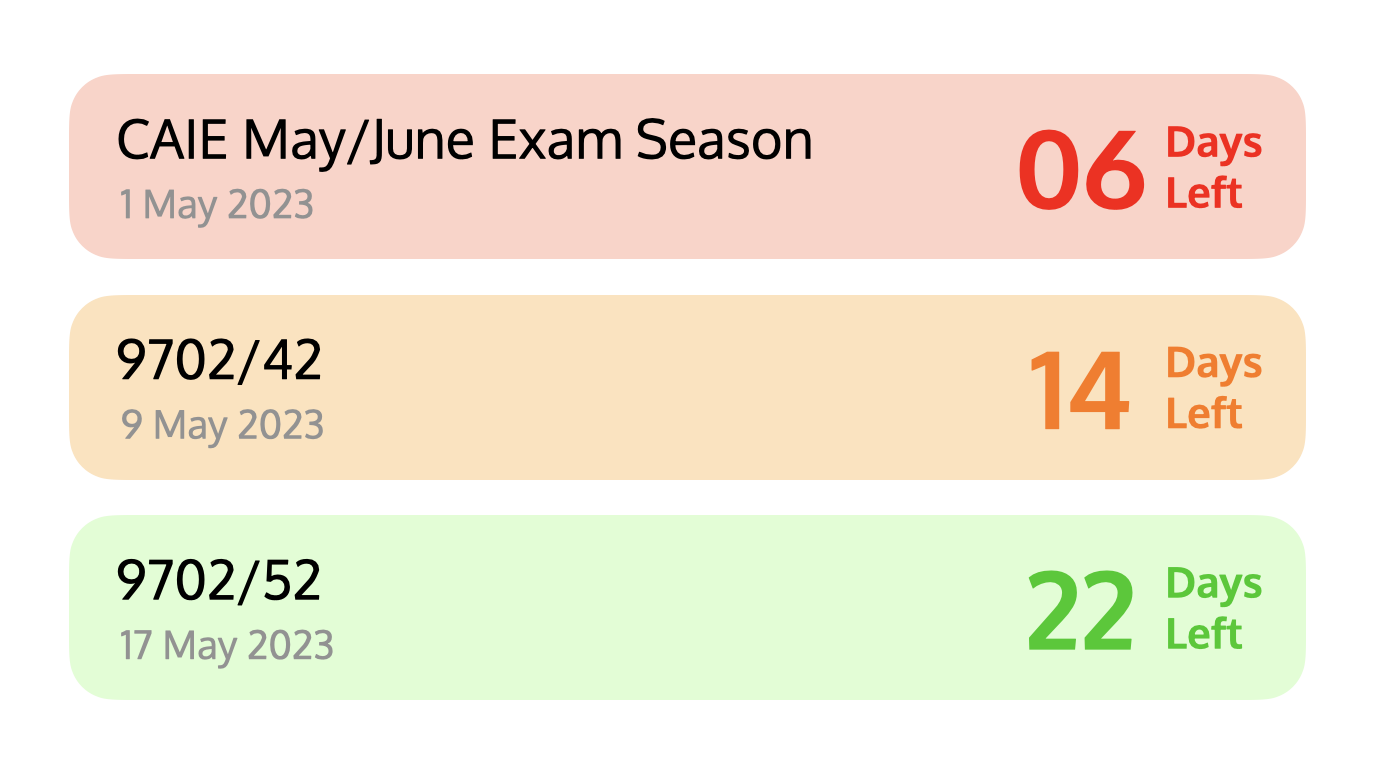
Your comment has been posted successfully, but it needs to be audited by myself artificially to prevent spam and negative comments.
Please wait for a few days. You will receive an email once your comment has been replied.